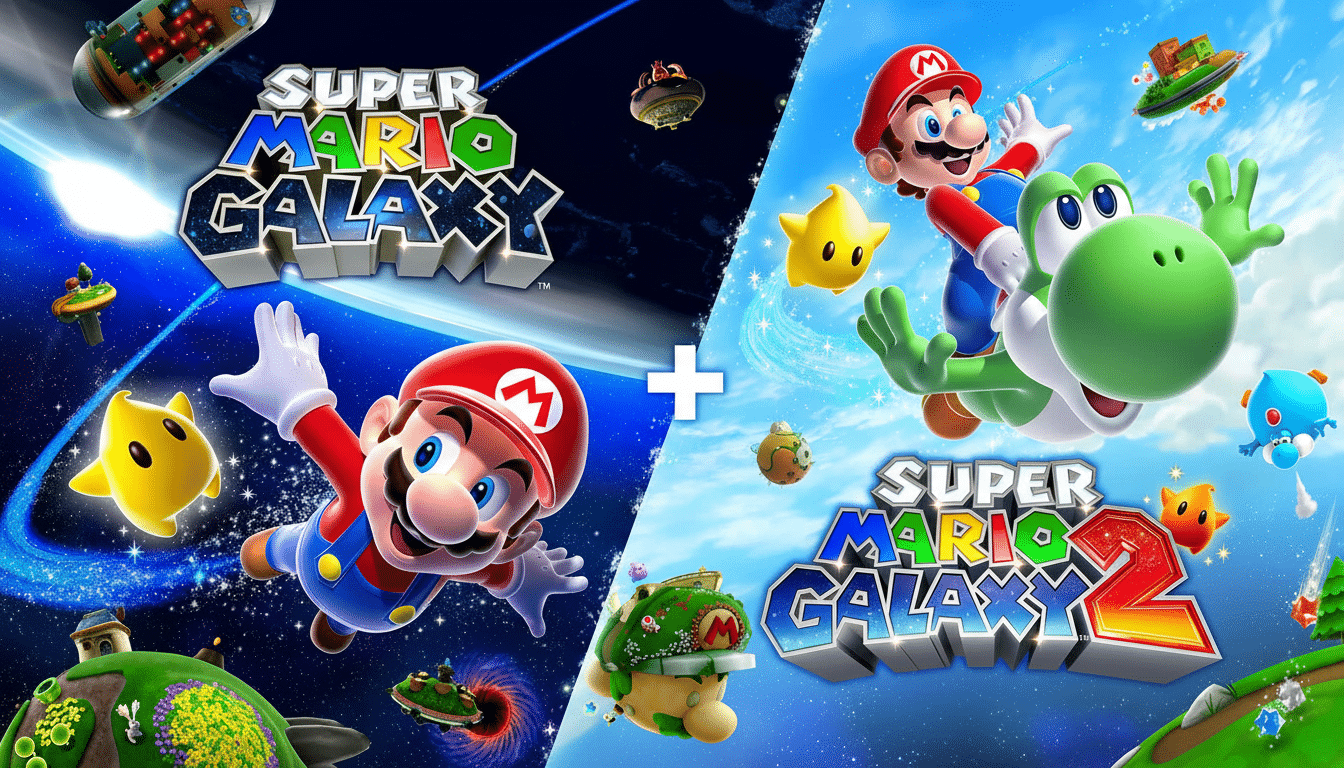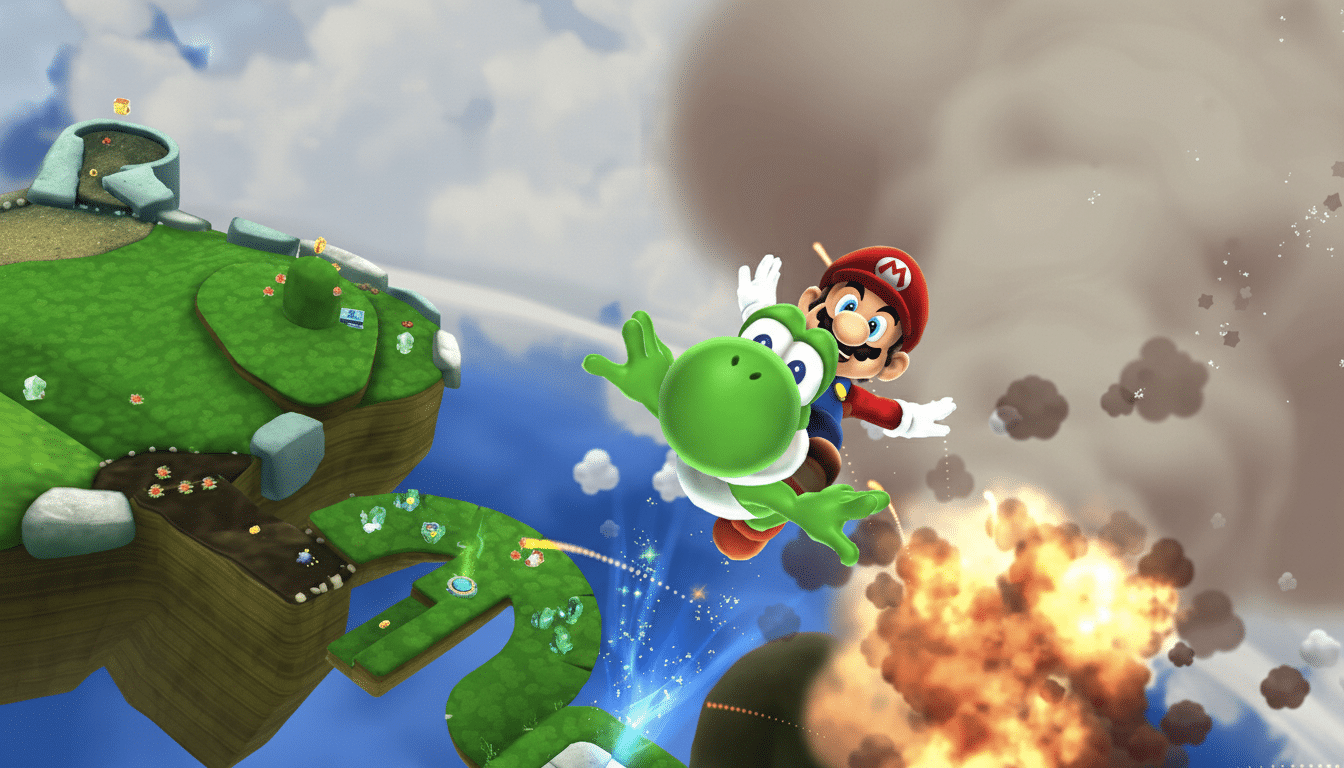I got to spend time with the Super Mario Galaxy 2 remaster on Switch 2, and it’s just as dazzling and colorful and vibrant as you remember—only sharper, cleaner, but also a lot friendlier to newcomers. The leap to 4K, a smartly modified assist mode, and clever control enhancements show that this isn’t just any reissue; it’s an exercise in preservation with purpose.
Nintendo announced today during a Direct that Super Mario Galaxy and its sequel will be coming to modern hardware, both individually and as part of a package.
- A Smart, Sensitive Remaster That Respects the Original
- Yoshi Still Makes Up the Rules and Reshapes Every Level
- Modern Controls That Stay True To The Wii DNA
- Assist Mode, Lore, and Why It’s Important
- Price and Context for the Bundle and Individual Games
- Bottom Line: A Faithful Remaster That Feels Definitive

It’s the first official way to play Galaxy 2 between its Wii launch and now—a blemish that has always felt odd given how frequently its sequel makes “best-of” lists.
A Smart, Sensitive Remaster That Respects the Original
Galaxy 2’s art direction has long punched above its weight—glossy planetoids, watercolor swatches of sky, effervescent starfields—but the 4K upgrade finally frees those ideas to breathe. Higher-res textures and cleaner edges do more than flatter nostalgia; they clear up smudginess surrounding smaller visual cues that help platforming feel fair. UI elements scale sharply, colors pop without oversaturation, and there’s none of the fuzzy shimmering you’d associate with an upscaled Wii title.
Importantly, the remaster preserves the pacing of the game and its gravity-defying geometry. Spherical worlds still fold beneath your feet, sling stars still whip you between micro-challenges, and the camera’s gentle nudges maintain an understandable horizon—important in a platformer where ground planes continuously revolve.
Yoshi Still Makes Up the Rules and Reshapes Every Level
Galaxy 2’s true revered element, however, is Yoshi.
The plumber’s prehistoric (and gluttonous) steed returns to the series in all its glory—at least for those levels where you can track him down. The dinosaur is not simply a ride; he’s a level-design verb. His tongue is both a grappling line and a precision tool, and the fruit power-ups allow for completely different reads of the same space.
- Dash Pepper turns airstrips into drag strips.
- Blimp Yoshi turns arenas into vertical puzzles.
- Bulb Berry lights up invisible platforms with a glowing radius that encourages route planning amidst the pressure.
In my playthrough, a mid-boss demanded that I swallow the incoming projectiles and spit them back in the middle of their arc. It’s the type of encounter that might have turned sour without the Wii’s pointer, but the new aiming method felt blissfully natural.

Modern Controls That Stay True To The Wii DNA
Returning from the original, gyro aiming is available through a pair of inputs: refined gyro aiming with Joy-Con 2 and by directly touching the screen when playing in handheld mode. They both map cleanly to Yoshi’s tongue reticle and star-bit interactions, and I had no problem flicking between targets while dashing around the surfaces of curved planets. Motion tracking feels better than first-gen Joy-Con hardware, and calibration remained solid even with wild swings.
Crucially, none of the tweaks turn Galaxy 2 into a typical platformer. You’re still aiming, sweeping, and reacting in ways that preserve the game’s endearing physicality—only you’re not pugnaciously wrestling with your tools.
Assist Mode, Lore, and Why It’s Important
The new assist mode is a small but transformative change. Additional health also affords families and returning players additional leeway to tinker later in the game in gauntlets that were historically lethal. It is optional, never patronizing, and it enhances rather than undermining the original balance.
There’s also fresh narrative texture. The second game even contains an in-game storybook, a tribute to the cherished tale stowed away within the first Galaxy. It’s a little addition with an outsized impact, injecting warmth into a game best remembered for its clockwork-level ingenuity. When a platformer this mechanical makes room for soul, the effect lasts.
Price and Context for the Bundle and Individual Games
Pricing is a topic of debate: Each game can be purchased separately, or there’s the bundle, and anyone who already owns the Switch version gets a Switch 2 upgrade at no additional cost. Value is likely to depend on how you feel about paying modern prices for old masterpieces—but few classics are worth it as simply and completely.
And it’s worth remembering: while the original Galaxy returned in a limited collection on Switch, most of Galaxy 2 has disappeared from storefronts. Preservation isn’t just nice-to-have; it’s how a new generation meets design that informed everything from indie gravity puzzlers to big-budget platformers like Astro Bot.
Bottom Line: A Faithful Remaster That Feels Definitive
It’s the ideal way to play Super Mario Galaxy 2. The remaster both respects the spirit of the original and smooths out rough edges, easing the path a little for new players without filing down its own challenge. Despite the price conversation buzzing in the background, it is—without hyperbole—a trip to another galaxy.

